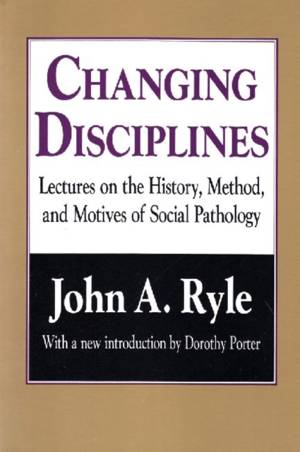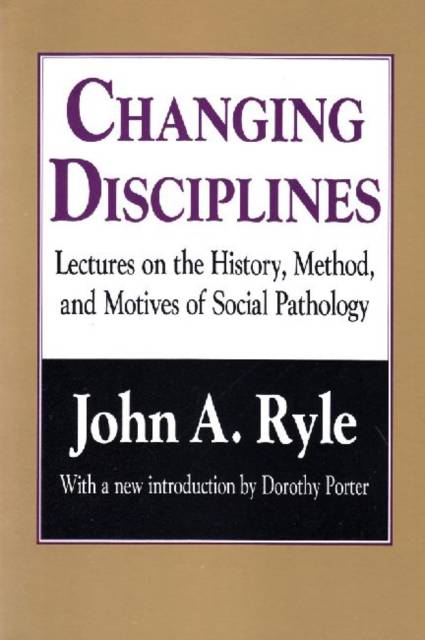
- Retrait gratuit dans votre magasin Club
- 7.000.000 titres dans notre catalogue
- Payer en toute sécurité
- Toujours un magasin près de chez vous
- Retrait gratuit dans votre magasin Club
- 7.000.0000 titres dans notre catalogue
- Payer en toute sécurité
- Toujours un magasin près de chez vous
Changing Disciplines
Lectures on the History, Method, and Motives of Social Pathology
John A Ryle, Dorothy PorterDescription
John A. Ryle has been described as a late Victorian intellectual, because he viewed medicine as an art as well as a science. In reality, his writings were intended to reform medical education. He aimed to capture the medical curriculum and restructure the methodological and epistemological basis of medicine. 'Changing Disciplines' is a compilation of some of Ryle's most thought-provoking lectures about the need to recreate medicine as a humanistic science.'Changing Disciplines' was intended to be a manifesto for a new medical creed that promoted clinical science as a field rather than a laboratory study, brought social science into the explanation of disease, and returned the "whole patient" to the center of medical practice. In 1942, the author resigned his chair at Cambridge to become the new director of a new Institute of Social Medicine established at the University of Oxford. In doing so he sacrificed on of the most senior academic positions in British medicine to embark on an educational adventure. His goal was to re-create medicine as a humanistic science, governed by what he called "social conscience as well as scientific intent." Ryle's critique of clinical medicine and its relationship to the biomedical sciences led to the creation of a new science, which he called "social pathology" and was institutionalized into a new academic discipline called "social medicine." Social pathology, or social medicine, shifts the boundaries of etiology out of the laboratory of the microscope into the laboratory of the community; out of the hands of the biochemist into the hands of the social scientist. Social medicine is concerned with man's relation to his environment. In contrast to public health of that era, social medicine focused more on chronic rather than infectious diseases and investigated the preventability of both. In a new introduction, Dorothy Porter discusses Ryle's academic and professional lives and how he came to develop the idea of social medicine. She shows how Ryle's studies and efforts have influenced the transformation of modern medicine and public health. 'Changing Disciplines' is a valuable resource for historians, sociologists, and practioners and researchers of medicine.
Spécifications
Parties prenantes
- Auteur(s) :
- Editeur:
Contenu
- Nombre de pages :
- 150
- Langue:
- Anglais
Caractéristiques
- EAN:
- 9781560007463
- Date de parution :
- 02-08-94
- Format:
- Livre broché
- Format numérique:
- Trade paperback (VS)
- Dimensions :
- 152 mm x 235 mm
- Poids :
- 249 g

Les avis
Nous publions uniquement les avis qui respectent les conditions requises. Consultez nos conditions pour les avis.






